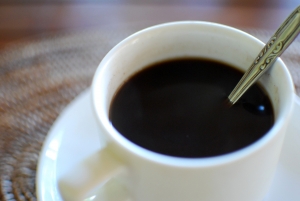Bad Water = Bad Coffee
Many Americans love to start their day with a great cup of coffee. If your cup of Joe is tasting a little off, it may not be your coffee beans that are to blame and you may need to actually consider the quality of your drinking water. In many areas of the United States, water has been classified as potable. This means that it is free of diseases and is considered safe to drink, however, this does not necessarily guarantee that your drinking water tastes good. In actual fact, poor tasting water can create an off taste in cooked foods or beverages brewed with water such as coffee and tea. The taste of water is determined by the raw materials and the process of disinfection used by your particular local water authority. Although many water authorities aim to create a better tasting drinking water, not all have been successful.
The particular “recipe” for creating drinking water at municipal water treatment facilities is heavily influenced by the necessity to kill bacteria and any other living organisms in the water to make it safe to drink. This is why a great number of municipal water systems rely on using chlorine, but this can result in water that tastes and smells just like the water at your local swimming pool. While this water is safe to drink, it does NOT mean that it is particularly good to drink.
Additionally, the taste of your water may also be compromised by a high mineral content. Minerals such as lime and iron can create hard water, but the presence of hydrocarbons and sulphur can make for even worse tasting water. These elements tend to be present in areas known for high production of crude oil, making a terrible smelling and tasting water supply. In fact, the entire oil patch in Texas for example (a high oil production region) is considered to be the worst tasting water in the whole country. There are tales of a salesman in this area of Texas who used Coca Cola to brush his teeth each morning because of how terrible the water was. Needless to say, if the water tastes this bad, then your cup of coffee is also going to taste bad.
The quality of your water must be optimal or your coffee will simply taste wrong. Your coffee flavor can be easily contaminated by intruding influences. Many coffee aficionados agree that if your water has any astringency or sharpness to the taste, then you should not use it to brew your coffee. Bad water will make for bad coffee. While the cost of bottled spring water for all of your drinking supply needs, including coffee, may be prohibitive, there are a number of filtration systems which can remove any unpleasant elements without compromising the beneficial minerals and taste, reverse osmosis being the most common. This can ensure that your drinking water is not only safe but pleasant to drink, meaning that you can enjoy a fresh cup of coffee or cool clear glass of water at any time.
About The Author:
Greg Scott is President of Valparaiso based Miracle/EcoWater Systems, the premier water conditioning company in Northwest Indiana serving the Lake, Porter and LaPorte County areas. A 3rd generation water treatment professional, Greg grew up in the family owned business started by his grandfather in the late fifties. He has made water treatment his life and under his direction and high-standards, the company’s water treatment experience, knowledge, and products are unrivaled in region.
